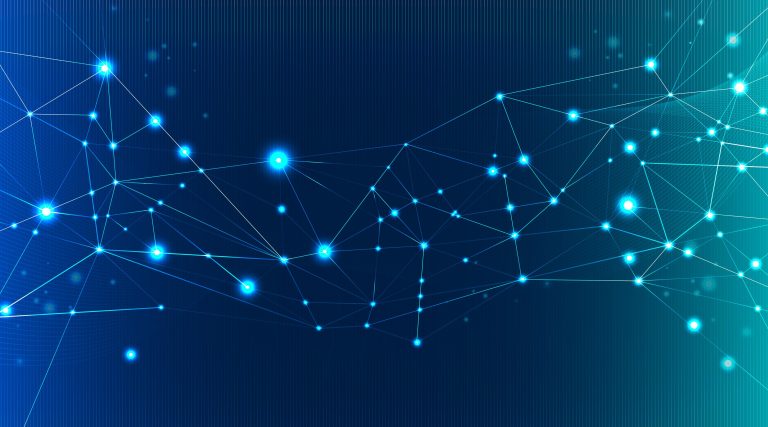
The article integrates insights from the principles of econophysics and quantum physics, emphasising the importance of efficiency, positivity and non-destructive solutions. It advocates for a reasonable, logic-driven quantum-inspired approach to geopolitical economic transformation.
In the crucible of interdisciplinary inquiry, the convergence of econophysics and Klein-Gordon (KG) theory illuminates a promising path toward sustainable geopolitical economic solutions. This fusion transcends traditional boundaries, unveiling the complex dynamics of economic systems through the lens of quantum-inspired principles and advanced mathematical frameworks. By adeptly weaving technical and scientific methods, this approach navigates the complexity of geopolitical economic phenomena, offering transformative insights rooted in historical milestones and scientific rigour.
In recent decades, the interdisciplinary field of econophysics has emerged as a promising avenue for understanding and addressing complex geopolitical economic challenges. On these, by applying principles and methodologies from physics to the study of financial markets and economic systems, econophysicists aim to uncover underlying patterns, dynamics, and principles governing economic behaviour against the ideal scenarios. As pioneers navigate this interdisciplinary expanse, they highlight the transformative potential of Klein-Gordon (KG) theory, one of the most advanced mathematical frameworks, to calculate against the underlying structures shaping the world’s geopolitical economic phenomena.
A Convergence of Physics and Economics
Econophysics, coined by physicist Eugene Stanley in 1995, represents a mix of physics and economics, leveraging tools and concepts from statistical physics to analyse complex systems. The field emerged from the recognition that economic phenomena exhibit behaviour akin to physical systems, such as collective interactions, emergent patterns, and dynamic fluctuations. Econophysicists apply methods like statistical mechanics, chaos theory, and pattern recognition to model and understand various economic phenomena, from stock market dynamics to income distributions. It stands as a testament to a paradigm shift. Complemented by KG theory, the core value of quantum field theory, this interdisciplinary frontier enables more than analogy level of the modelling of wealth distribution, market oscillations, and geopolitical economic interactions with unprecedented precision. From pioneering applications to historical breakthroughs, each milestone in this journey marks a quantum leap in our understanding of economic complexity and resilience. Notable achievements include the elucidation of power-law distributions in income inequality, the discovery of critical phenomena in market crashes, and the development of quantum-inspired algorithms for predictive modelling. This combination has been considered as one of the most potential formulas to play an important role in shaping Geopolitical economic landscape.
Implementation Across Time Horizons: Past, Present, and Future
Across past era, econophysics and KG theory have brought about historical trends, offering retrospective insights into market dynamics, wealth distribution, and economic resilience. In the present era, these methodologies serve as indispensable tools for quantitative analysis, risk management, and policy formulation, empowering decision-makers with predictive capabilities and adaptive strategies. Looking to the future, econophysicists envision a landscape where quantum-inspired approaches drive sustainable development, social equity, and global prosperity, transcending conventional paradigms to forge a new era of geopolitical economic enlightenment. As we contemplate the implementation of these methodologies, the nuanced interplay between non-violent algorithmic solutions and conventional approaches. Non-violent algorithmic solutions, leveraging the insights of econophysics and KG, offer the promise of efficiency, effectiveness, minimal harm and destruction. By harnessing the power of scientific nquiry and historical perspective, they empower decision-makers with predictive capabilities and adaptive strategies. Conversely, conventional models, such as the Epstein Civil Violence Model which relies heavily on the accumulation of and excessive negative emotions such as griefs, though insightful, may oversimplify the complexities of human behaviour and societal interactions. While providing a framework for understanding civil unrest, their utility may be constrained by predetermined parameters and assumptions.
The Quantum Perspective: Efficiency and Effectiveness
Quantum physics offers profound insights into the nature of reality, including principles of superposition, entanglement, and uncertainty. When applied to geopolitical economic contexts, quantum principles emphasise the importance of efficiency, effectiveness, and non-linear dynamics in driving change and innovation. Unlike classical approaches, quantum-inspired strategies prioritise holistic, interconnected solutions that optimise outcomes while minimising resource utilisation and unintended consequences. By harnessing the power of quantum thinking, econophysicists can develop more nuanced, adaptive models for addressing geopolitical economic challenges. Econophysics embodies a paradigm shift in economic analysis, transcending traditional boundaries to embrace the principles of statistical physics. At its core, econophysics highlights the emergent properties of economic systems, treating markets as complex, dynamic entities akin to physical systems. Through the lens of quantum physics, econophysicists unveil the quantum-like behaviour of financial markets, where uncertainty, entanglement, and non-linear dynamics reign supreme.
Klein-Gordon Theory: The Quantum Emissary
At the forefront of this quantum phenomenon stands Klein-Gordon theory. Originally devised to describe scalar particles with spin-zero, KG theory finds new resonance in the realm of econophysics, offering a mathematical apparatus to model the dynamics of wealth distribution, market oscillations, and geopolitical economic interactions. By imbuing economic systems with quantum-like attributes, KG enables the exploration of intricate patterns, phase transitions, and critical phenomena shaping market dynamics.
Efficient Solutions Without Revolution: A Non-Violent, Non-Destructive Approach
In contrast to traditional notions of revolution or upheaval, which often entail violence, disruption, war and social upheaval, the synergy of quantum physics and econophysics offers a non-destructive path to geopolitical economic transformation. Rather than seeking to overthrow existing systems, this approach focuses on optimising existing resources, leveraging quantum-inspired efficiency principles, and fostering collaboration and innovation. By analysing geopolitical economic challenges as opportunities for creative problem-solving and collective action, we can work towards sustainable, inclusive solutions that benefit society as a whole. In the midst of interdisciplinary inquiry, where the intricate threads of econophysics and KG theory converge, a new trend of geopolitical economic understanding can unfold. With the adept weaving of technical and scientific methods, these disciplines highlight the complex layers of economic systems, unveiling quantum-like behaviour and emergent phenomena. Rooted in historical milestones and science, econophysics redefines economic analysis, transcending traditional boundaries to embrace the principles of statistical physics. KG serves as the quantum emissary, offering a mathematical scaffold to model wealth distribution, market oscillations, and geopolitical economic interactions. As pioneers navigate this uncharted terrain, they navigate through the annals of history, discerning pivotal moments that catalysed paradigm shifts and reshaped our understanding of geopolitical economic dynamics. Each milestone marks a quantum leap in our quest to unravel the mysteries of economic complexity and the best way to solve it. Thus, in navigating the geopolitical economic landscape, stakeholders must weigh the pros and cons of each approach, seeking to balance scienwith practical applicability and adaptability in the pursuit of sustainable geopolitical economic solutions.
As we embark on a path toward sustainable geopolitical economic solutions, guided by the principles of efficiency, effectiveness, and inclusivity through collaboration, innovation, and visionary foresight, we can chart a course toward a more equitable, resilient, and prosperous future for all. The convergence of quantum physics and econophysics holds immense potential for fundamentally addressing complex geopolitical economic challenges. By adopting a quantum-inspired mindset of efficiency, effectiveness, and interconnectedness, we can develop innovative solutions that optimise outcomes while minimising negative impacts. Importantly, this approach emphasises collaboration, creativity, and non-destructive change, offering a path towards a more sustainable and equitable future for the creatures and stakeholders of our planet.




